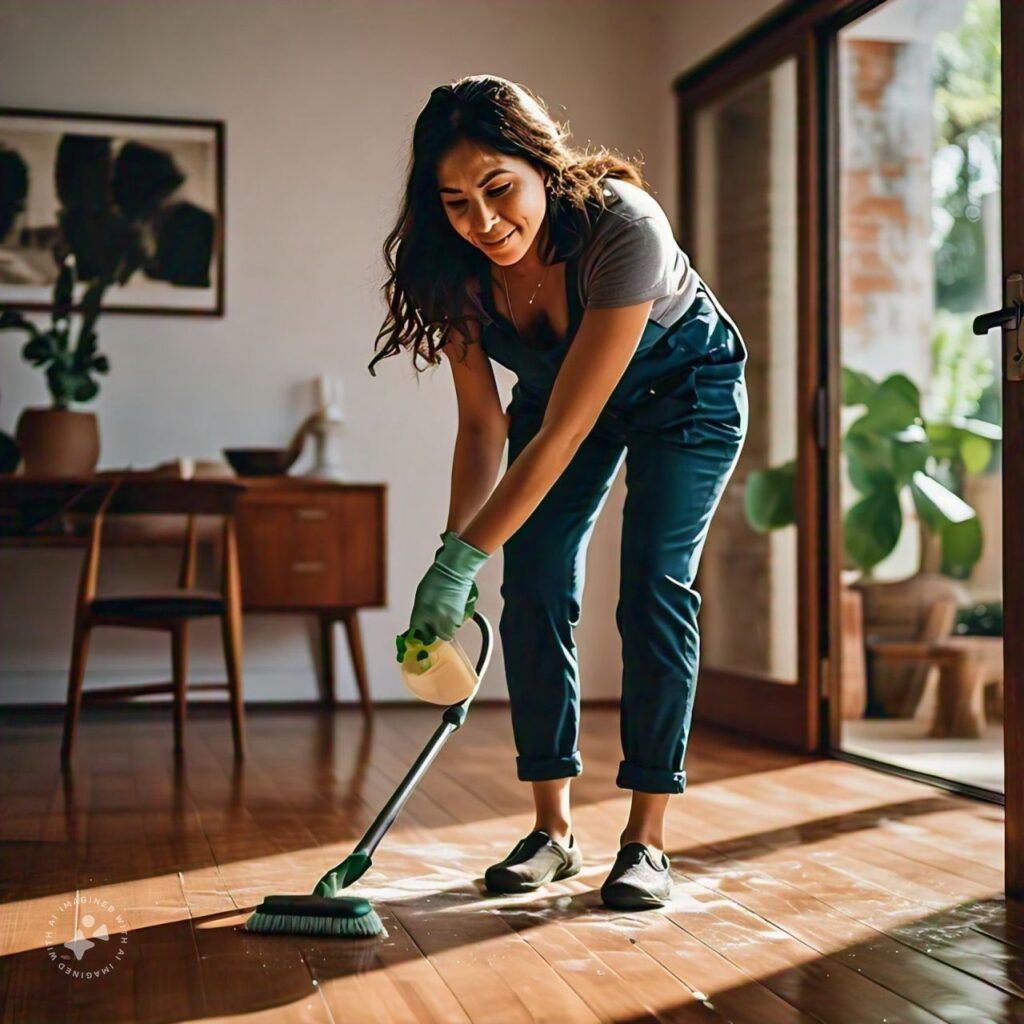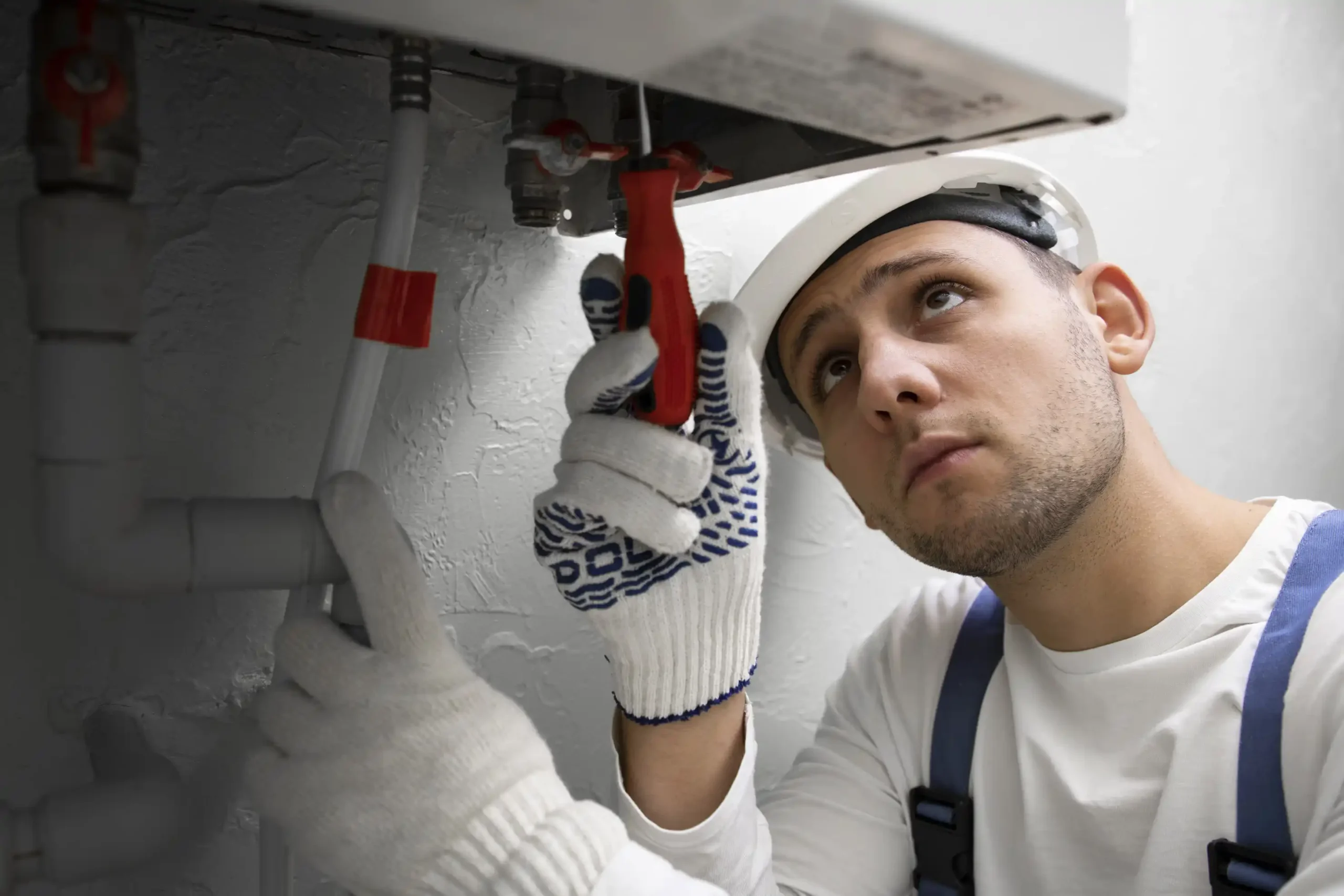Hardwood floors add timeless elegance and warmth to any home, but maintaining them requires special care to preserve their beauty and longevity. Using harsh chemical cleaners can damage the wood’s finish over time, which is why many homeowners prefer to use homemade hardwood floor cleaners. These natural solutions are not only effective but also gentle on your floors and safe for the environment.
In this comprehensive guide, we’ll explore some of the best homemade hardwood floor cleaner recipes, why they work, and how to use them properly. With a few simple ingredients that you probably already have at home, you can keep your hardwood floors clean, shiny, and well-maintained.
Why Use a Homemade Hardwood Floor Cleaner?

Why Use a Homemade Hardwood Floor Cleaner?
The Benefits of Natural Cleaners
There are several reasons to opt for homemade cleaners over commercial products:
- Non-Toxic and Eco-Friendly: Many store-bought cleaners contain harsh chemicals like ammonia, bleach, or fragrances that can be harmful to your health and the environment. Homemade cleaners, on the other hand, use natural ingredients that are safe for your family, pets, and the planet.
- Cost-Effective: Making your own cleaner is much cheaper than purchasing commercial products. Most homemade floor cleaners rely on affordable household items like vinegar, baking soda, and essential oils.
- Gentle on Wood: Harsh chemicals can strip away the protective finish on your hardwood floors, causing damage over time. Homemade cleaners are typically mild, yet effective, at removing dirt and grime without harming the wood.
- Customizable Scents: With essential oils, you can customize the scent of your cleaner to match your preferences, creating a pleasant aroma while cleaning.
What to Avoid in Hardwood Floor Cleaners
Before we dive into the recipes, it’s essential to know what not to use when cleaning hardwood floors. Certain ingredients can cause damage or discoloration over time:
- Ammonia: It can strip the finish from hardwood floors, leading to a dull appearance.
- Vinegar without dilution: While diluted vinegar is safe, using pure vinegar can be too acidic and damage the finish.
- Water: Hardwood floors are sensitive to excessive moisture, so avoid using too much water or letting it sit on the surface for long periods.
Best Homemade Hardwood Floor Cleaner Recipes

Best Homemade Hardwood Floor Cleaner Recipes
1. Vinegar and Water Cleaner
This is one of the simplest and most effective hardwood floor cleaners. Vinegar helps break down dirt and grime while disinfecting the surface, but when diluted, it is safe for use on hardwood floors. The key is to avoid using too much water to prevent moisture damage.
Ingredients:
- 1/2 cup of white vinegar
- 1 gallon of warm water
Instructions:
- Mix the vinegar and warm water in a bucket.
- Dampen a microfiber mop in the solution. Wring it out thoroughly to ensure it’s only slightly damp.
- Mop the hardwood floor, making sure not to saturate the wood.
- Let the floor air dry or dry it with a clean, dry cloth.
Tip: For a fresh scent, add 5-10 drops of your favorite essential oil (like lavender, lemon, or eucalyptus) to the mixture.
2. Olive Oil and Lemon Cleaner
For hardwood floors that have lost their shine, this olive oil and lemon cleaner can restore a natural luster while cleaning. Olive oil moisturizes the wood and leaves a glossy finish, while lemon juice helps cut through grime.
Ingredients:
- 1/4 cup of olive oil
- 1/3 cup of lemon juice
- 1 gallon of warm water
Instructions:
- Combine the olive oil, lemon juice, and warm water in a bucket.
- Dip your mop into the mixture and wring out any excess liquid.
- Mop the floor gently, focusing on high-traffic areas that may have lost their shine.
- Allow the solution to air dry, leaving behind a natural sheen.
Tip: Use this solution once a month to maintain the shine on your floors, but avoid using it too frequently as it can leave a residue if overused.
3. Baking Soda and Vinegar Cleaner for Tough Stains
For stubborn stains or grime buildup, baking soda and vinegar work wonders. Baking soda is a natural abrasive that helps scrub away tough spots, while vinegar disinfects and breaks down dirt.
Ingredients:
- 1/2 cup of baking soda
- 1/4 cup of white vinegar
- 1 gallon of warm water
Instructions:
- Dissolve the baking soda in warm water.
- Add vinegar to the mixture (it will fizz slightly).
- Dip a sponge or soft cloth in the mixture and use it to scrub the stained areas gently.
- Once the stain is gone, mop the floor with a vinegar and water solution (recipe #1) to ensure a clean, streak-free finish.
Tip: Test this solution in a small, inconspicuous area before applying it to the entire floor to make sure it doesn’t affect the finish.
4. Tea-Based Hardwood Floor Cleaner
Black tea contains tannins, which naturally enhance the color and shine of hardwood floors. This old-fashioned cleaning method is gentle but effective, and it leaves behind a rich, warm glow on wooden surfaces.
Ingredients:
- 4 black tea bags
- 1 quart of boiling water
Instructions:
- Steep the tea bags in boiling water for about 10 minutes.
- Remove the tea bags and let the tea cool slightly.
- Dampen a microfiber mop with the tea (make sure it’s only damp, not wet).
- Mop your hardwood floors as usual, allowing the tea to enhance the natural color of the wood.
Tip: This solution is best for darker wood floors, as the tannins in the tea can bring out their depth and richness.
5. Essential Oil Cleaner
For a cleaner that leaves a fresh, natural scent while still being effective on dirt, this essential oil blend is a great option. You can customize the oils based on your preference, but popular choices include lavender, tea tree, lemon, and peppermint for their antibacterial properties and pleasant scents.
Ingredients:
- 1/4 cup of castile soap
- 10-15 drops of essential oil (lavender, lemon, or tea tree)
- 1 gallon of warm water
Instructions:
- Mix castile soap and warm water in a bucket.
- Add the essential oils of your choice.
- Use a microfiber mop to apply the solution to your floors, ensuring it’s slightly damp.
- Mop the floors thoroughly and allow them to air dry.
Tip: For an extra shine, you can buff the floor with a dry cloth after it has dried completely.
Best Practices for Cleaning Hardwood Floors
1. Regular Maintenance
To keep your hardwood floors looking their best, regular maintenance is essential. Sweep or vacuum your floors at least 2-3 times a week to remove dust and dirt that can scratch the surface. Use a microfiber mop for everyday cleaning and avoid harsh brooms that can cause damage.
2. Avoid Excess Moisture
Hardwood floors are susceptible to water damage, so it’s important to avoid saturating the wood with liquid. When mopping, always use a damp (not wet) mop, and make sure to wipe up any spills immediately. Letting water sit on your floors can cause warping or discoloration over time.
3. Use Soft Cleaning Tools
When cleaning hardwood floors, always use soft tools like microfiber mops, sponges, or soft cloths. Avoid using abrasive scrubbers, which can scratch or dull the wood’s finish.
4. Buff After Cleaning
After cleaning your hardwood floors, consider buffing them with a clean, dry cloth. This will help remove any streaks or residue left behind by your cleaning solution, leaving your floors with a polished, shiny finish.
Conclusion
Cleaning hardwood floors doesn’t have to involve harsh chemicals or expensive commercial products. With these homemade hardwood floor cleaner recipes, you can achieve a clean, shiny, and well-maintained floor using natural, non-toxic ingredients that are safe for your home. Whether you’re looking to refresh your floors with a vinegar and water solution or bring out their shine with an olive oil and lemon cleaner, these DIY solutions provide everything you need for spotless, beautiful hardwood floors.










